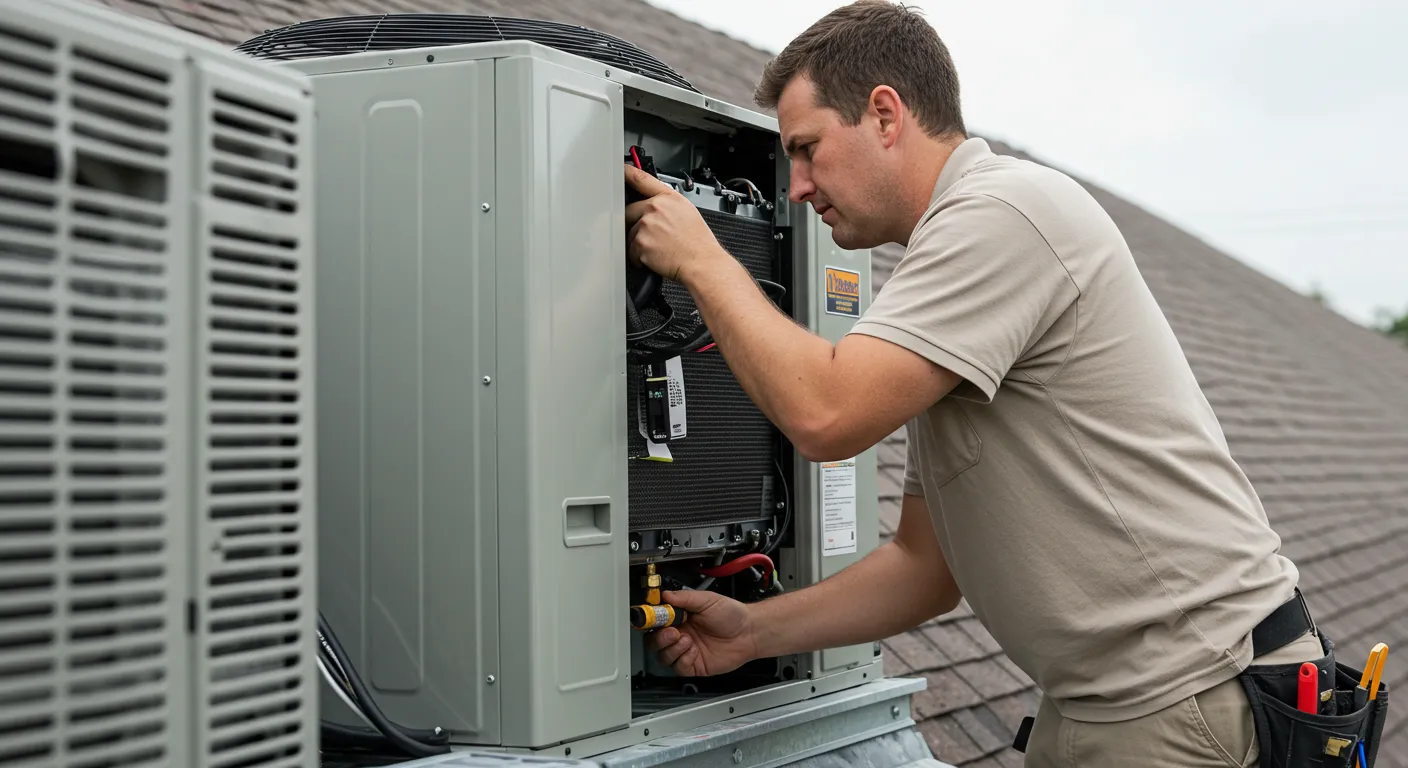HVAC Maintenance in Stillwater, OK
Keeping your heating and cooling system well maintained is one of the most cost effective ways to protect comfort, indoor air quality, and equipment life in Stillwater homes. With hot, humid summers, cold winters, heavy spring pollen, and occasional storm-driven power fluctuations, HVAC systems in Payne County face seasonal stresses that make regular maintenance essential. This page explains what comprehensive HVAC maintenance from Sitton Mechanical, LLC looks like, common problems we see in Stillwater, recommended schedules, plan options, and what a professional tune up includes so you can make an informed decision.
Why Seasonal HVAC Maintenance Matters in Stillwater, OK
- Summer heat and humidity force air conditioners to run longer and work harder, accelerating wear on compressors and motors.
- Spring pollen and Oklahoma dust can clog filters and coils, reducing airflow and indoor air quality.
- Winter cold increases demand on furnaces and heat pumps; freeze/thaw cycles and power outages can reveal hidden issues.
- Regular maintenance reduces emergency repairs during peak weather and helps systems meet warranty requirements.

Common HVAC Issues in Stillwater Homes
- Reduced cooling capacity or uneven cooling due to dirty coils or clogged filters
- Short cycling or increased runtime from improper refrigerant charge or thermostat problems
- Noisy operation from worn blower motors, belts, or loose components
- Reduced airflow caused by dirty blower wheels, blocked return vents, or duct leaks
- Furnace ignition problems, high carbon monoxide risk, or cracked heat exchangers when gas systems are not inspected
- Condensate drain clogs leading to water damage or system shutdowns
- Electrical failures or tripped breakers after storms or power surges
What a Comprehensive HVAC Maintenance Program Includes
A thorough seasonal tune up covers safety, performance, and preventive care for both cooling and heating systems. Typical items include:
- Visual inspection of indoor and outdoor units for damage, debris, and proper drainage
- Filter inspection and replacement guidance based on filter type and household needs
- Condenser and evaporator coil cleaning to restore heat transfer efficiency
- Blower wheel and motor cleaning, lubrication where applicable, and belt inspection
- Refrigerant level check and leak assessment (EPA-certified refrigerant handling when service is required)
- Electrical system check: tighten connections, inspect capacitors, relays, and contactors
- Thermostat calibration and control verification
- Airflow measurement and static pressure assessment to identify duct or filter problems
- Condensate drain and trap cleaning to prevent overflow and microbial growth
- Safety checks: carbon monoxide testing for combustion systems, flue inspection, and safety control testing
- Performance testing: temperature splits, amperage draw, and startup/shutdown behavior
- Documentation of findings and maintenance actions, with prioritized recommendations
Recommended Maintenance Frequency
- Air conditioning tune up: once a year in spring before cooling season
- Heating tune up: once a year in fall before heating season (furnaces and heat pumps)
- High-use systems or homes with pets/allergies: consider twice-yearly visits
- Air filter checks: monthly for basic fiberglass filters; every 60 to 90 days for pleated filters in typical homes; more frequently if pets, smokers, or high pollen
- Duct and indoor coil inspections: annually, or when airflow and comfort issues appear
Typical Service Plans (Features, No Pricing)
Most homeowners benefit from a tiered plan structure that provides flexibility and predictable care. Example plan tiers might include:
Basic Maintenance
- Annual seasonal tune up for one system
- Filter reminders and basic filter replacement options
- Visual safety and performance inspection
Preferred Maintenance
- Biannual tune ups (cooling and heating)
- Priority scheduling during peak seasons
- Discounted diagnostic fees and parts
- Basic filter replacement included
Premier Care
- Biannual comprehensive tune ups plus priority emergency scheduling
- Annual duct inspection or coil treatment
- HVAC performance report and energy efficiency recommendations
- Preferred labor rates and parts discounts
Plans typically include written inspection reports and recommended next steps so you understand any issues and associated priorities.
What to Expect During a Professional Tune Up
A professional technician follows a consistent checklist to give systems the best chance of reliable, efficient operation:
- Inspect system access and outdoor unit condition, clear debris and vegetation.
- Replace or inspect filters and note replacement schedule.
- Clean or brush coils and check refrigerant lines and insulation.
- Verify refrigerant charge and look for leaks if levels are low.
- Measure blower and motor operation, clean blower assembly, and lubricate moving parts where applicable.
- Test electrical components and safety controls, tighten connections.
- Check thermostat calibration, program settings, and operation.
- Test condensate drain and traps, clean as needed.
- Run system through full cycle, record temperatures, airflow, and amperage to evaluate efficiency.
- Provide a written summary with findings, actions taken, and recommendations.
Technician Qualifications and Quality Standards
Quality maintenance should be performed by technicians who are trained, screened, and certified to handle HVAC equipment safely. Important qualifications to look for:
- EPA certification for refrigerant handling
- Factory or manufacturer training for specific brands and equipment
- Background screened and drug tested technicians for homeowner peace of mind
- Experience troubleshooting both residential furnaces and air conditioning systems
- Use of calibrated tools to measure airflow, amperage, and refrigerant pressures
These practices help ensure work is safe, thorough, and aligned with manufacturer requirements for warranties.
Benefits of Timely Maintenance
- Improved system efficiency and lower monthly energy costs
- Extended equipment life and delayed replacement costs
- Fewer unexpected breakdowns, especially during extreme Stillwater weather
- Better indoor air quality through cleaner coils and proper filter use
- Safer operation of combustion appliances with reduced carbon monoxide risk
- Documentation that supports warranty claims and home resale disclosures
Maintenance Tips for Stillwater Homeowners
- Schedule cooling maintenance in early spring and heating maintenance in fall to avoid peak-season delays.
- Replace disposable filters after heavy pollen seasons or if you have pets.
- Keep outdoor units clear of leaves, grass, and mulch to maintain airflow.
- Consider a sealed, high-efficiency filter and ensure your system can handle the added resistance.
- Monitor energy bills and unusual noises as early indicators that maintenance is needed.
Regular, professional HVAC maintenance tailored to Stillwater conditions protects comfort, reduces operating costs, and preserves equipment value. A structured maintenance program with documented tune ups, clear filter schedules, and qualified technicians is the most effective path to stable, efficient home climate control year round.
Keep Your Comfort System Running Strong: Schedule Your HVAC Maintenance Today!
Don’t wait for a breakdown to discover your system needs attention. At Sitton Mechanical, LLC, we provide thorough HVAC maintenance in Stillwater, OK, designed to keep your heating and cooling system efficient, reliable, and safe all year long. Our skilled technicians inspect, clean, and fine-tune every component to prevent costly repairs, extend equipment life, and ensure peak performance through Oklahoma’s toughest seasons. Contact us today to schedule your seasonal tune-up and enjoy worry-free comfort and lower energy bills!










